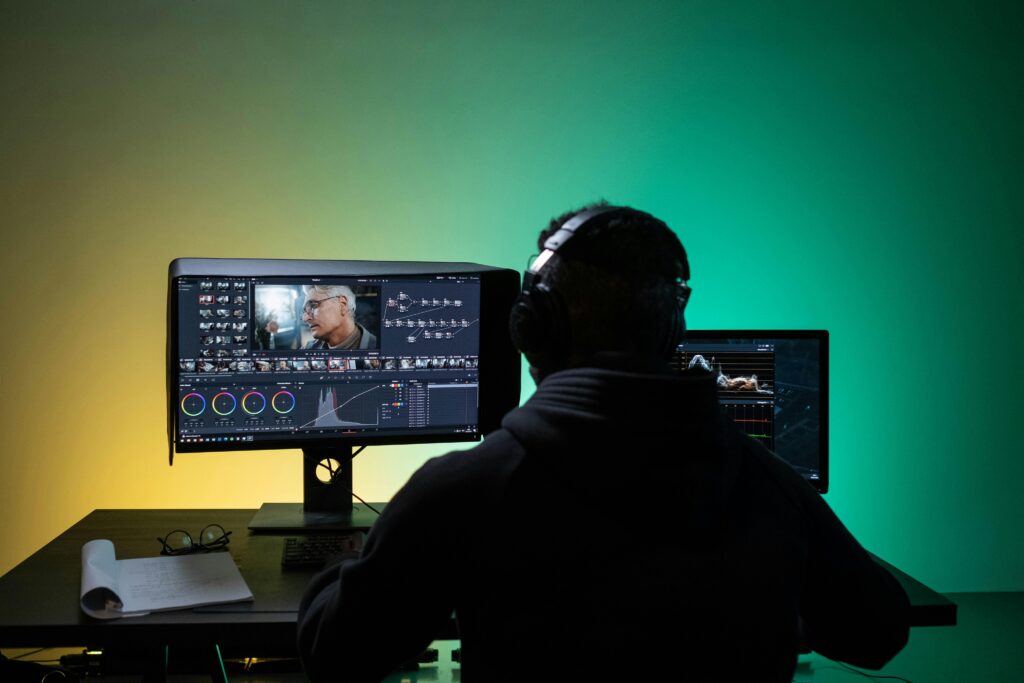Within the domain of composed communication, where clarity and accuracy rule incomparable, editing and altering serve as vital instruments for refining dialect, clarifying thoughts, and guaranteeing quality and polished skill. This article investigates the subtleties of editing and altering, shedding light on their importance, strategies, challenges, and the transformative effect they have on composed works over differing spaces.

Revealing the Pith of Editing and Altering
Editing and altering are two unmistakable however interconnected forms that play complementary parts in refining composed substance. Whereas editing fundamentally centers on adjusting mistakes in linguistic use, accentuation, spelling, and designing, altering dives more profound into the structure, coherence, fashion, and in general adequacy of the content. Together, these forms point to raising composed works to the most noteworthy benchmarks of clarity, coherence, and polished skill.
The Importance of Clarity and Accuracy
In a time characterized by data over-burden and brief consideration ranges, clarity and exactness in composed communication are more vital than ever. Whether creating scholastic papers, trade reports, promoting materials, or inventive works, journalists endeavor to communicate their thoughts with clarity, coherence, and affect. Editing and altering play a pivotal part in accomplishing these goals, guaranteeing that the expected message is passed on precisely, concisely, and viably to the expected gathering of people.
Methods for Compelling Editing
Viable editing requires a sharp eye for detail, an orderly approach, and a commitment to exactness. Editors fastidiously filter composed works for blunders in language structure, accentuation, spelling, and sentence structure, utilizing apparatuses such as lexicons, fashion guides, and grammar-checking programs to distinguish and rectify botches. They too pay near consideration to consistency in designing, quotation fashion, and adherence to editorial guidelines, guaranteeing that the ultimate item meets the most noteworthy benchmarks of quality and polished skill.

Raising Content through Altering
Editing goes past unimportant mistake rectification, centering on refining the substance, structure, and fashion of composed works. Editors survey the coherence and stream of the content, clarifying ambiguities, rebuilding sentences and sections, and upgrading by and large coherence. They moreover give profitable criticism on dialect utilization, tone, voice, and story circular segment, directing creators in creating a compelling and locks-in substance that resounds with perusers. Through mindful modification and refinement, editors change unpleasant drafts into polished magnum opuses that fascinate and motivate.
The Crossing Point of Craftsmanship and Science
Proofreading and altering are both craftsmanship and science, mixing specialized capability with imaginative knowledge and judgment. Whereas the specialized perspectives of linguistic use, accentuation, and spelling shape the establishment of editing, the craftsmanship of altering lies within the nuanced understanding of dialect, group of onlookers, and setting. Gifted editors and editors have a profound appreciation for dialect and writing, coupled with a fastidious consideration of detail and a commitment to greatness. They approach each venture with a mix of accuracy, inventiveness, and compassion, endeavoring to honor the author’s voice while upgrading the clarity and adequacy of the content.

Overcoming Challenges and Pitfalls
Despite their significance, editing and altering are not without their challenges. Time limitations, tight due dates, and competing needs can weaken the meticulousness and viability of the editing and altering handle. Moreover, weariness, natural inclination, and cognitive dazzle spots can block the capacity to distinguish blunders and irregularities precisely. Overcoming these challenges requires teaching, strength, and a commitment to persistent enhancement, as well as collaboration and communication between scholars, editors, and editors to guarantee the highest quality results.
Saddling Innovation for Improved Proficiency
In a time checked by innovative advancement, editing and altering have been revolutionized by a heap of advanced apparatuses and program arrangements. Grammar-checking programs, spell-checkers, and fashion guides give priceless help to editors and editors, advertising real-time criticism and proposals for advancement. Moreover, collaborative altering stages empower consistent communication and collaboration among scholars, editors, and editors, encouraging the trade of criticism and corrections in real-time. Whereas innovation has without a doubt upgraded proficiency and efficiency in editing and altering, human judgment and insight remain crucial in guaranteeing the precision, coherence, and adequacy of composed substance.

Fitting Procedures for Diverse Sorts of Substance
The procedures and approaches utilized in editing and altering may shift depending on the sort of substance and its aiming group of onlookers. Scholastic original copies may require fastidious consideration to quotation fashion, designing, and adherence to insightful traditions, whereas trade archives may prioritize clarity, conciseness, and polished skill. Imaginative works, on the other hand, may benefit from a more nuanced approach, centering on voice, tone, and account cohesion. Fitting editing and altering methodologies to suit the particular needs and desires of distinctive sorts of substances guarantees that the ultimate item meets the most elevated measures of quality and pertinence.
Cultivating a Culture of Input and Persistent Change
Successful editing and altering are not single endeavors but collaborative forms that flourish on criticism, exchange, and persistent advancement. Scholars, editors, and editors ought to develop a culture of open communication and useful feedback, inviting input as an opportunity for development and refinement. Peer surveys, mentorship programs, and proficient improvement workshops offer important roads for sharpening aptitudes, sharing experiences, and remaining side by side with industry patterns and best-hones. By grasping a culture of criticism and nonstop advancement, scholars, editors, and editors can collectively raise the quality and effect of composed communication in their areas.
Grasping Differing Qualities and Consideration in Language
Dialect may be an energetic and ever-evolving substance, formed by differing societies, viewpoints, and encounters. Editing and altering play a significant part in advancing differences and incorporation in dialect, guaranteeing that composed substance reflects the lavishness and majority of human expression. Editors and editors ought to be adjusted to issues of etymological differences, social affectability, and comprehensive dialect utilization, dodging generalizations, predispositions, and microaggressions in composed communication. By grasping diversity and incorporation in dialect, editors and editors contribute to making a more evenhanded, aware, and comprehensive talk that celebrates the differing qualities of voices and encounters in society.

Conclusion:
A Confirmation of the Control of Exactness and Clarity
In conclusion, editing and altering stand as confirmations of the control of accuracy and clarity in composed communication. From the scholarly community to commerce, writing to news coverage, editors and editors play a crucial part in refining dialect, clarifying thoughts, and guaranteeing quality and polished skill in composed works. Through their fastidious consideration of detail, sharp bits of knowledge, and commitment to greatness, editors and editors maintain the most elevated measures of clarity, coherence, and astuteness in composed communication. As the world proceeds to advance, editing and altering will stay fundamental columns of effective communication, shaping the way we trade thoughts, pass on data, and interface with one another through the composed word.
